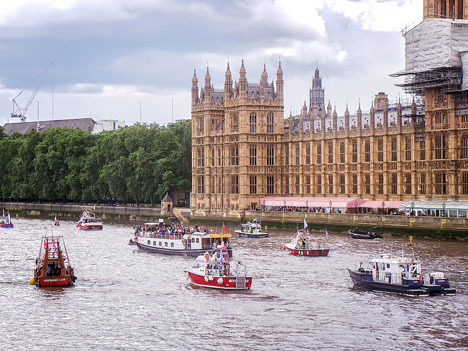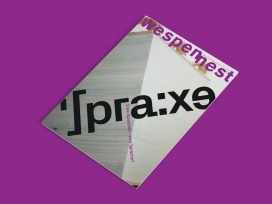We Brits make our most important political decision in a generation this week. However, rather than reasoned examination of and debate over the issues involved, it has been depressing to watch as the campaigns have degenerated into an embarrassingly ugly and dangerous shouting match. Following events from abroad, it is agonizingly clear that the EU referendum has not only confirmed but exacerbated long-standing divisions in British society. This showcase of the worst rather than best of British democracy, and the deep social wounds caused, should stand as a warning to politicians – and people – throughout Europe.
Project hate and project fear
Prime minister David Cameron’s misguided attempt to soothe internal divisions in the Conservative party by calling the referendum has, in part, been responsible for the troubles that followed. By pandering to his party’s Eurosceptic right wing and attempting to steal Ukip’s clothes, Cameron gave credence to vicious anti-migrant and anti-EU sentiment, effectively unleashing the dogs of hate.

Farage’s flotilla on the Thames, in front of the Palace of Westminster, London, after havingwith a rival Remain fleet. Photo: Garry Knight. Source:Flickr
Nigel Farage’s “Breaking Point” poster with its echoes of Nazi propaganda may have made leading Leave campaigner Michael Gove “shudder”, but it was Boris Johnson who compared the EU to the Nazi project to “unite Europe”. It was from Farage’s flotilla on the Thames that a fisherman shouted “Hitler did it with gas, Merkel does it with paperwork.” Egged on by the gutter press, Leavers style themselves as patriots pitched against treacherous Remainers, who apparently don’t “Believe in Britain”.
Migrants – regular, irregular, refugees, job-seekers, Syrians, Czechs (what difference does it make, they’re all foreigners!) – have been the scapegoats of the campaign, routinely and groundlessly blamed for the structural socio-economic failings that have left millions feeling precarious. That leaving the European Union will almost certainly not improve the fate of the excluded and ignored working class has been lost in the whirlwind created by the Leave campaign, although there is now a growing backlash against the hijacking and co-opting of a working class revolt by the elitist elements of the Leave campaign.
Johnson and Gove’s desperate and belated attempt to change the tone of their campaign – after the murder of Labour MP Jo Cox – by offering an amnesty to illegal migrants – has enraged their base and may yet split their campaign. It has also, predictably, been undermined by Farage who now claims that he is a victim of political hate and laments that the death of Jo Cox may rob the Leave campaign of the momentum that they had built up. Rather, Brits are thankfully starting to think twice about the sentiments whipped up by the Leave campaign or as it should be known, Project Hate.
Given this shameful conduct – that is anathema to the best of my country’s traditions – I would have hoped therefore that the Remain campaign would thus be in the ascendency, but the reverse is true. The campaign has been pathetic from the start, with Cameron & Co.’s previous threats to leave spiking their own guns. “Led” by retro-leftist Jeremy Corbyn, Labour have been ineffective advocates for Britain’s place in the EU. Sadly they see our laudable opening to Central and East Europeans as an electoral headache rather than a source of pride.
Remainers have failed to make a positive case or inspire the British public by showing what the EU is for or why it even exists – shocking given that, for all its faults, the Union is the world’s most successful liberal project as well as its most successful peace project. Instead they resorted to scare tactics and deserve the name given to them by Leavers – Project Fear.
A cautionary tale of two Britains
As a Brit who greatly enjoys the benefits of EU membership – including living and working in the Czech Republic – I have looked on in horror at the way the campaign has unfolded, but Czechs should be concerned too. Brits have benefitted massively from EU membership – from trading in the single market, to enjoying the better social protections and workers’ rights that it offers. Fundamentally, however, they have benefitted from the peace that the EU guarantees, which allows Europeans to flourish in myriad ways of their choosing – united in diversity.
The EU has benefitted from Britain too, which has helped to counterbalance those who want to fast forward to federalism, leaving European people behind, and in holding the EU bureaucracy to account and keeping reform on the agenda. Crucially, the UK was a key supporter of the EU’s 2004 enlargement and brings significant weight to the EU’s commitment to share the burden of security and defence in Europe.
It would be difficult to glean this from the two dismal campaigns in the referendum. Worryingly, although Czechs and other Central Europeans benefit much more directly and obviously from EU membership than Brits (for reasons of both geography but also through the benefits of the Schengen zone), there has also been talk of Czexit. Given the context of and conduct during the British referendum and its consequences so far, this is disturbing.
Internationally-oriented capital dwellers view the concerns of town and countryside folk as parochial. The liberal, urban middle classes are ignorant or dismissive of the problems of the working classes and the structurally unemployed. Antagonisms between these groups are stoked by populist politicians, who are contemptuous of “experts” and demonize migrants and Brussels alike. Cowardly mainstream politicians tacitly agree rather than tackle the real and difficult problems of the socially and economically excluded. A society is turned counter-productively against itself to the benefit of self-serving elites. Sound familiar?







